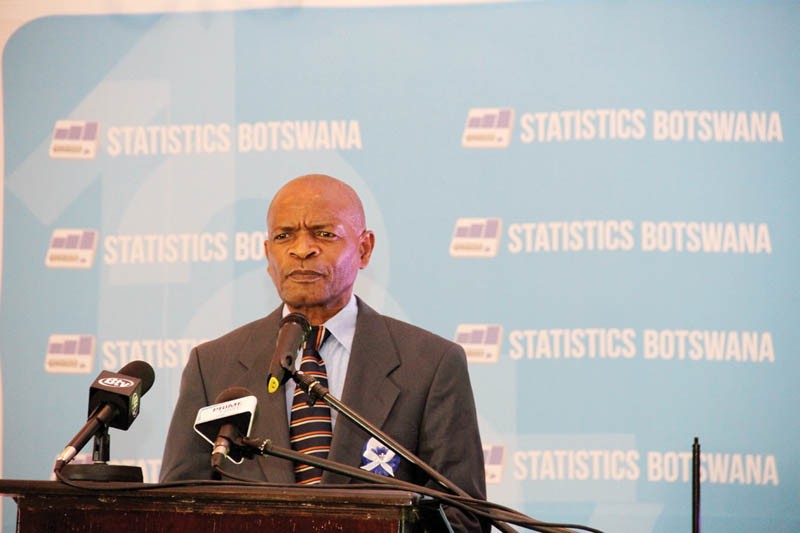Statisticians urged to produce credible data
Isaac Pinielo | Friday June 17, 2016 14:16


“Statisticians are maligned because some people speak about them and their product in a spitefully, critical manner.
In fact, some people will frankly admit they do not believe in statistics,” he said.
He noted that the media has admitted that a significant proportion of their readership do not believe official statistics.
Motsemme said statistics are often abused through ignorance or manipulation, adding that human beings deal with statistics frequently and that statisticians are unsung heroes.
He further stated that a meaningful contribution of realistic statistical intervention is necessary, noting that such interventions include reliable, up-to-date data for purposes of monitoring and evaluation of progress.
“I can assure you that as long as the data we disseminate for official purposes meets the criteria expounded by the National Institute of Data Sciences, we can get a little bit of credit,” he said.
He said by meeting the criteria, namely; relevance, timeliness, accessibility and accuracy, they can confidently bring the skeptics and cynics over to their side.
Motsemme, however, said it is quite interesting that people accept the numbers in the news as fact, without considering the skill in producing them, especially from small, non-representative samples.
“It is a fact that budgetary constraints work against the use of large representative samples that will more accurately reflect the characteristics of the entity under scrutiny,” he said.
He regretted that in their justification for getting more realistic budgets, they resort to a language that is not universally understood by some policy makers.
“In order to win them over to our side, we need to be strategic as we communicate with them.
If you can’t deliver on the basis of what the budget they allocate you, then make them aware how much you can reasonably deliver based on the allocated budget,” Motsemme said.
He advised statisticians to use the Revised SADC Regional Indicative Strategic Development Plan (RISDP) for purposes of communicating their budgetary needs, as well as using the Regional Strategy for the Development of Statistics.
He said statisticians have a responsibility to provide the necessary oversight and strategic policy guidance in the development of statistics in the region and keep abreast with the latest global developments and initiatives in statistics so that they remain relevant and embrace best practice in production and dissemination of quality official statistics.
“In addition, let us be objective and impartial in our reporting.
You will be aware of many instances where statisticians have been persecuted by interest groups for telling the truth,” Motsemme said.
He added that the reason for such persecution is that the numbers did not support the point of view of certain interest groups.
The SADC Statistics Committee, which was established to provide policy and strategic direction to the development of statistics in the SADC region, meets annually to continuously provide policy direction relating to development of statistics in the region in line with international standards and practices. Among other things the committee’s role is to provide strategic guidance towards the development of protocols or legal instruments providing for uniform approaches to the implementation of the SADC Statistics Systems.
The committee also provides strategic guidance towards the provision of relevant statistics for regional integration, statistical capacity development in SADC region, seeking to achieve comparability, standardisation and harmonisation of data processing, statistical systems and policies, as well as consideration and recommendations to the council on issues relating to statistics.
